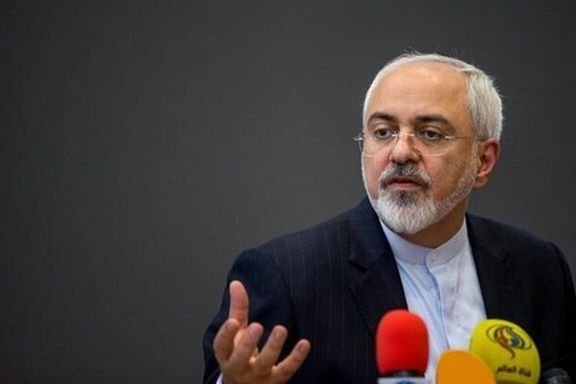Anti-US Stance Dangerous For Iran, Says Former FM Zarif

Iran's former Foreign Minister Mohammad Javad Zarif says Tehran has the wrong understanding of its relations with Russia, which is based on miscalculations.

Iran's former Foreign Minister Mohammad Javad Zarif says Tehran has the wrong understanding of its relations with Russia, which is based on miscalculations.
Zarif, who negotiated the 2015 JCPOA nuclear accord with the United States, suggested that Iran should have its strongest ties with China like some 180 other countries in “the current post-western world,” when neither all important events take place in the West, nor it is the West that makes decisions on important developments of the world.
In a speech at the Iranian Society of Political Sciences in Tehran July 12, Zarif said that the end of the Cold War gave rise to the illusion of the emergence of a unipolar world order. "In fact, the years 1990 – 2008 were marked by the illusion of a unipolar world," he said.
The former foreign minister's speech came after a long silence, and it is not clear if the timing of his public appearance carries any particular meaning.
Zarif added that at the time, Russia had lost the Cold War, but the United States did not win it. "We are currently undergoing a period of transition," he said, adding that many politicians in Iran still have the mentality of the Cold War era and expect Russia to play the role it used to play. This is based on a wrong perception and this miscalculation can lead to our destruction.
"Today Russia cannot compete with other powers in any area. The reason why Russia attacked Ukraine was that it wanted other powers to negotiate with it," Zarif said, adding that "Today there is no permanent alliances between countries. Instead, they are replaced with temporary coalitions. Thinking of permanent alliances is a pitfall."

He argued that Iran wrongly thinks Russia can be its ally. Many were surprised when Russia did not veto UN Resolution 1929 against Iran, which set up a fact-finding mission to investigate human rights violations. “But I knew that they were not going to veto it,” Zarif said. However, he insisted: “I am not an anti-Russian person. I believe it is dangerous for Iran to be anti-Russian or anti-US. We should prioritize our national interests and then consider opposing US domination."
Zarif argued that perhaps no new dominating power will emerge. China's point of strength is the power of its trade and technology. He added that we are moving toward a global network rather than a bipolar or unipolar world.
Speaking about the nuclear talks, Zarif said the negotiation has always been a war of narratives between Iran and the United States which did not work well although both Iran and the US narratives were meant to reach an agreement.
Meanwhile, former diplomat Jalal Sadatian also said in an interview on Saturday that "China and Russia simply perceive Iran as a friend and not as a strategic ally and regulate their ties with Tehran based on the same perception."
He observed that Iran unilaterally assumes that countries such as China and Russia are its strategic allies, but those countries do not have such a definition of their ties with Iran.
Sadatian, a former Iranian ambassador in the United Kingdom, said, "This explains why Russia and China sometimes take positions against Iran's territorial integrity. They regulate their relations with Iran based on their own national interests not based on illusions. Therefore, when they see relations with the Persian Gulf Arab states is more beneficial for their interests, they align with those countries rhetoric."
"This means, when they see they can win hefty contracts with Saudi Arabia and the United Arab Emirates they tend to get closer to those countries regardless of our demands and interests," Sadatian explained.
Earlier in the week, in a joint Russia-GCC statement at the sixth joint ministerial meeting between the Persian Gulf Cooperation Council and the Russia, ministers affirmed their support for the United Arab Emirates demand over three Iranian islands.
He added that the third point in this respect is that "the Islamic Republic needs to strike a balance in its ties with East and West in order to benefit from its geopolitical potentials. Iran's constant anti-Western rhetoric will eventually weaken it."